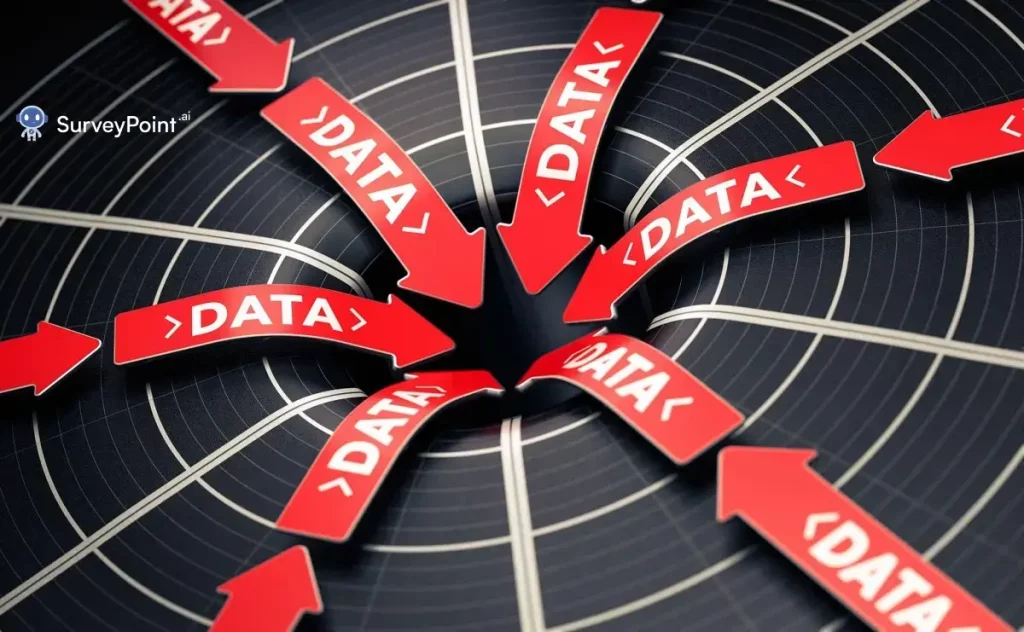
This blog talks about tried-and-true methods and best practices for collecting data that will fit easily into your study design.
A good way to receive data is necessary to get good information that can be used to do reliable analysis. Getting the right information quickly is guaranteed when research methods are closely linked to research goals.
Getting Quantitative Data

Structured quantitative data has benefits for statistical research such as
- Numbers that are used as inputs for mathematical models.
- Measures of stability that are all the same.
- How well surveys work for big groups of people.
Some common quantitative methods are:
Structured Surveys: Use specific questions on a questionnaire to get people to tell their own thoughts.
Behavior Tracking: Watch and count trends without getting in the way.
Analytics: Use data that are already available on platforms, such as sales or web traffic.
Sensors: Gather continuous streams of information about the surroundings.
Getting Qualitative Data

Flexible qualitative methods are best for getting complex exploratory insights:
- Open-ended conversations to get different points of view.
- Focus group talks show that people have similar ideas.
- Ethnographic notes that look at how people act in different situations.
- Looking at pictures, words, sounds, and videos.
Qualitative data gives a lot of information that numbers alone can’t.
Combining Different Ways of Collecting Data

A mixed methodology uses both quantitative and qualitative data to get different points of view and make sure that ideas are correct through triangulation. As an example:
- Open-ended talks with survey respondents were used to add to the answers.
- Topics brought up by behavioral data analytics will be looked into in focus groups.
- Numerical sensor readings paired with diary notes that describe how users felt.
- Multi-method collection covers all of your study questions in depth.
You Must Read: Data Analysis Techniques: Knowing the different ways to properly analyze data 2023 Data Analysis Delight: 5 Statistical Test Trends You Need to Know Top 10 Data Visualization Tools to Transform Your Data
4 Important Rules for Collecting Data Efficiently

When planning your study, make sure you follow these best practices:
1. Match your methods to your specific goals
Carefully choose methods to get the exact information you need to reach your goals.
2. Fly your plane and check your instruments
Test tools to make them better and make sure they record high-quality inputs the way they’re supposed to.
3. Add checks for correct data
Add rules for validating data, quality checks, and redos for groups that aren’t working right.
4. Set deadlines that you can keep
Allow enough time to collect all the necessary info in an honest way. Do not rush.
Carefully planned data gathering, backed up by piloting and ongoing verification, will provide the strong inputs needed for a convincing analysis.
With strategic planning, you can come up with a way to collect data that will quickly give you the deep insights you need to answer your most important business questions.
Conclusion
It’s hard to say enough about how important good Collecting Data methods are in the ever-changing world of research. Now that it’s 2023, it’s clear that the quality of the data is very important for a well-planned study project.
The key to success is being able to adapt to how Collecting Data changes over time. This can mean using advanced technologies like AI and machine learning or using strict sampling methods.
The tips in this article will help you make a research plan that will last, no matter how much experience you have as a researcher or how new you are to the field. Now that everything is based on Collecting Data, remember that how you collect data is just as important as what you gather. Your study will go well if you stay informed and open to new ideas.




